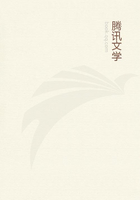
第115章 Religion(6)
Here 'Philip Beauchamp'comes to a direct issue with the theologians.He denies that the supernatural motive will be on the side of morality.When J.S.Mill remarked that there had been few discussions of the 'utility'as distinguished from the truth of religion,he scarcely recognises one conspicuous fact.The great argument of divines had always been the absolute necessity of religion to morality;and if morality be understood to mean utility,this is simply an argument from utility.The point,indeed,was often taken for granted;but it certainly represents one of the strongest persuasives,if not one of the strongest reasons.The divines,in fact,asserted that religion was of the highest utility as supplying the motive for moral conduct.What motives,then,can be derived from such knowledge of the Deity as is attainable from the 'Natural theology'argument?How can we prove from it that he who puts the world together is more favourable to the virtues than to the vices which are its results;or,if more favourable,that he shows any other favour than can be inferred from experience?He has,it is agreed,put men,as Bentham had said,under the command of two sovereign masters,Pleasure and Pain;and has enabled them to calculate consequences,and therefore to seek future pleasure and avoid future pain.
That only proves that we can increase our happiness by prudence;but it suggests no additional reasons either for seeking happiness or for altering our estimate of happiness.As 'Philip Beauchamp'argues,we cannot from the purely empirical ground get any motive for taking into account anything beyond our 'temporal'or secular interests.This,again,was in fact admitted by Paley.His mode of escape from the dilemma is familiar.The existence of a supreme artificer is inferred from the interventions in the general order of nature.The existence of a moral ruler,or the fact that the ruler approves morality,is inferred from his interference by the particular manifestations of power which we call miraculous.We know that actions will have other consequences than those which can be inferred from our own experience,because some two thousand years ago a Being appeared who could raise the dead and heal the sick.If sufficient evidence of the fact be forthcoming,we are entitled to say upon his authority that the wicked will be damned and the virtuous go to heaven.Obedience to the law enforced by these sanctions is obviously prudent,and constitutes the true differentia of moral conduct.Virtue,according to the famous definition,is doing good 'for the sake of everlasting happiness.'The downright bluntness with which Paley announced these conclusions startled contemporaries,and yet it must be admitted that they were a natural outcome of his position.
In short,the theological position of the Paley school and the Utilitarian position of 'Philip Beauchamp'start from the common ground of experience.Religion means the knowledge of certain facts,which are to be inferred from appropriate evidence.It does not modify the whole system of thought,but simply adds certain corollaries;and the whole question is whether the corollaries are or are not proved by legitimate reasoning.Can we discover heaven and hell as we discovered America?Can observation of nature reveal to us a supernatural world?'
The first difficulty is that the argument for natural theology has to rest upon interference,not upon order,and therefore comes into conflict with the first principles of scientific procedure.The Deity is revealed not by the rational but by the arbitrary;and the more the world is explained,the less the proof that he exists,because the narrower the sphere of his action.Then,as such a Deity,even if proved,is not proved to be benevolent or moral,We have to rely for the moral element upon the evidence of 'miracles,'that is,again,of certain interruptions of order.The scientific tendency more or less embodied in Protestantism,so far as it appealed to reason or to 'private judgment,'had,moreover,made it necessary to relegate miracles to a remote period,while denying them at the present.To prove at once that there are no miracles now,and that there were a few miracles two thousand years ago,was really hopeless.In fact,the argument had come to be stated in an artificial form which had no real relation to the facts.If the apostles had been a jury convinced by a careful legal examination of the evidence;if they had pronounced their verdict,in spite of the knowledge that they would be put to death for finding it,there would have been some force in Paley's argument.But then they had not.To assume such an origin for any religion implied a total misconception of the facts.